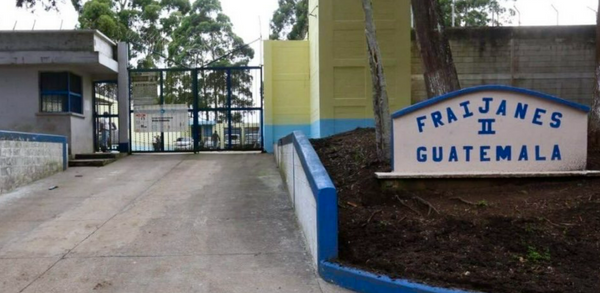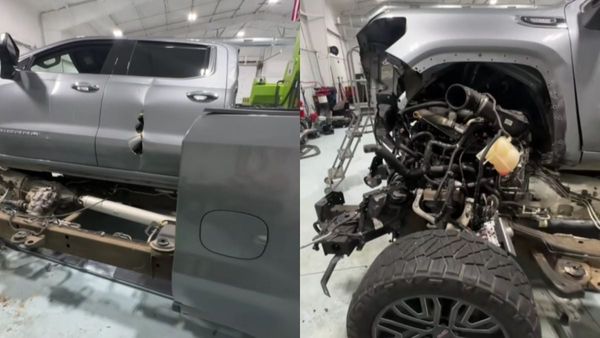Value-oriented investors beat growth managers overall at investing this year. A higher percentage of active value managers have outperformed through Nov. 30, by a whopping 18-1 ratio, according to Morningstar Direct.
Successful value investors like to say one key is to buy leaders before they are leaders, giving them more room to grow.
So which stocks does one of this year's leading value investors like — for now and for down the road?
We asked Michael Liss, lead manager of $2.3 billion American Century Value Fund's (TWVLX). That fund's managers have shown gold-medal skill at investing during 2022.
Investing Success
In a year filled with mutual funds mired in negative territory and lagging the overall market in the form of the S&P 500, American Century Value is up 3.53% through Nov. 30. That was nearly 17 percentage points ahead of the S&P 500, which notched a 13.10% setback. The fund's large-cap value rivals tracked by Morningstar Direct averaged a 2.02% loss.
As of the end of November, Liss and his teammates held three stocks that happen to be members of the IBD 50. The IBD 50 is IBD's flagship screen of leading growth stocks that show strong relative price strength and top-notch fundamentals.
And 12 of their roughly 100 holdings had IBD Composite Ratings of 90 or higher. But many other holdings need time to ripen into stocks with signals for big share-price gains that CAN SLIM investors seek.
A Composite Rating of 90 means that a stock is in the top 10% of all stocks on a number of technical and fundamental factors, including both price performance and earnings. The best way to use the Composite Rating is to watch for stocks that have 90-plus scores and are forming bases or are in follow-on buy areas. That way, you spot the best-positioned stocks before they start big price runs. Look up a stock's Composite Rating at IBD Stock Checkup.
From his office in Kansas City, Mo., 53-year-old Liss talked with IBD about his strategy and approach to investing.
A Winner's Investing Do's And Don'ts
IBD: How do you describe your approach to investing?
Michael Liss: We try to find quality companies. Those are companies with good balance sheets, good returns on capital that are sustainable because the companies have barriers to entry that protect them from competitors. They're great franchises. That could be like Procter & Gamble (which the fund holds) owning Tide (detergent). Or it could be an energy exploration and production company that has lower costs than rivals.
IBD: You prize stocks with lower volatility, right?
L:iss: You hit the nail right on the head. We want companies with the best risk-reward balance. We want companies with a smaller range between their upside and downside. For us, that's a key part of controlling risk.
IBD: Is patience an important part of your strategy?
Liss: Patience is a key tenet of our process. A typical holding period could be 18 to 24 months. But we've held companies for five to 10 years. We've adjusted the weight up and down in those time spans, generating gains by trading around a core position.
IBD: Your portfolio is mostly large caps, but you've also got smaller stocks. How important is that mixture?
Liss: We are a multicap fund. We own small-, mid- and large-cap stocks, although there are only so many small caps we can own. We have stocks as small as Heartland Express (which has a $1.3 billion market capitalization). That leeway lets us buy high-quality companies of any size, when they're trading at a discount to their fair value.
Keep On Trucking
IBD: Heartland shares are down slightly for the year. Won't business fall off if we go into a recession?
Liss: Here's our case for investing in Heartland. The trucking industry is fragmented. These guys have about the biggest business with a 1% to 2% market share. They have better scale than rivals. They can offer better pricing. They have the highest returns on capital of any publicly traded trucking company.
They have a clean balance sheet. They can do acquisitions or distributions. Their (o.5%) dividend yield looks small. But from time to time they declare a one-time dividend. So they pay more than it looks like. They're well run. They're the most efficient operator in the industry.
2023 Market Outlook
IBD: What's your market outlook for 2023?
Liss: If I knew, it would be sitting on an island in the Caribbean — that I owned! But we're aware of what's going on.
The way I look at it, the market is not as expensive as it was before this year. But it is still not cheap.
Would it surprise me if the market traded sideways next year? It would not. Would it surprise me if we had a recession? It would not.
When inflation slows like it did last month, the market gets excited. But the Fed knows better than to stop raising rates just yet.
Investing In Energy
IBD: Energy was only your fourth-biggest sector weight as of Sept. 30. You're already finding a lot of opportunities elsewhere?
Liss: Energy was our largest overweight in 2020 and 2021. Our team nailed it. When oil stocks were down, you had to pay someone to take it when it was $35 a barrel. We built our weight. And we took our lumps.
Now, we see the move toward renewable energy. But it's going to take time to move the (global) automotive fleet to electric vehicles. We'll be adding, not subtracting, internal combustion engines for 10 or 20 years.
IBD: Tie that in to your thesis for ConocoPhillips, please.
Liss: We really like it. We continue to focus on exploration and production companies with low costs or the best scale or the best technologies to pull deposits out of the ground.
Conoco has low-cost assets. Half of their oil and gas deposits are in U.S. shale formations, which is low-cost to extract. They have a strong balance sheet. They return capital to shareholders in the form of dividends and stock buybacks. They're not putting every dime they get into the ground like the industry did five to seven years ago. They have strong returns on capital compared to their peers. The stock is not ridiculously cheap. But it is not expensive.
Sectors The Fund Likes More
IBD: Which sectors have you been investing more in?
Liss: Tech, REITs, utilities and banks. We're still underweight in tech, utilities and REITs, but less so than a year ago.
IBD: Name some buys, please.
Liss: Agree Realty and U.S. Bancorp.
IBD: Dollar Tree was up 7% this year through November. Not bad for a chain that caters to cost-conscious shoppers.
Liss: We'll take anything that's up 7% this year. We like their opportunity to improve. The new executive chairman, Rich Dreiling, led Dollar General. It's a money machine. The real opportunity with Dollar Tree is to add new price points to keep up with inflation. Everything won't sell for one dollar. It will be accretive to earnings. And it won't hurt their customer base. (Customers) already pay other price points at discount stores like Walmart. It won't be a surprise to them.
They've rolled out the new price points program to several hundred stores. They will roll it out to their entire store base (or several thousand) over the next couple of years.
Part Of Risk Control
IBD: What's your thesis for investing in a low-profile company like MSC Industrial Direct, a machinery maintenance and repair firm?
Liss: They fly under the radar screen! They have good returns on capital. They have a good balance sheet. And they pay a nice dividend. Plus, their range of outcomes is narrow. Remember, that's part of our risk control. They won't crater in a recession.
They're not dirt cheap. But their valuation is not expensive.
IBD: Am I right in thinking that Nvent Electric is another stock that is not sexy but it is attractive?
Liss: Right, their products are not sexy or flashy. But they are crucial. Yes, these guys would be hurt in a downturn. But they would still generate free cash flow.
If you're wiring something like your computer or whatever in a harsh environment and need to enclose it, these guys provide it. They even make things that check ESG boxes (by protecting energy sources).
Since they were spun out of water-treatment manufacturer Pentair in 2017, they've improved their returns on capital and margins. This is a good Steady Eddie business.
Merck Prognosis
IBD: Merck is up about 46% this year. They pay a 2.7% dividend yield. And drugmakers tend to hold up well in a recession. What's your thesis?
Liss: All of the above. This is a high-quality company with high returns on capital and high barriers to entry. They really hit a home run with cancer drug Keytruda. It provides about a fourth of their sales. And they've got quite a few things outside Keytruda.
IBD: Is insurer Chubb going to get clobbered by claims stemming from storms this year?
Liss: They'll incur some losses. Their earnings will get hit, but not their capital. That's an important distinction. Their balance sheet is good. They've got a lot of excess capital.
In their car insurance business, they're able to raise rates like everyone else.
They're diversified. When one area of insurance takes a hit, they can shift capital to other areas.
Investing In Oracle
IBD: Some people think of Oracle as an out-of-date investing story. You?
Liss: We really like them. They have a great balance sheet. They're entrenched with customers who really need their database product. These guys were transitioning from selling on-premises software to selling it in the cloud. Their on-premises software wasn't growing, but it wasn't collapsing. And their cloud business was continuing to accelerate.
So, earnings were slowly growing. They were trading at a cheap valuation. Still, the market got upset with their 2022 acquisition of Cerner (a provider of digital information systems used by health care entities).
But we think they can generate enough free cash flow in a year or two to pay off all the debt for Cerner. We think Cerner in going to jump-start Oracle's legacy health care business. In the meantime, their base business does well. And they have a cheap valuation with a solid balance sheet.
Follow Paul Katzeff on Twitter at @IBD_PKatzeff for tips about personal finance and strategies of the best mutual funds.







